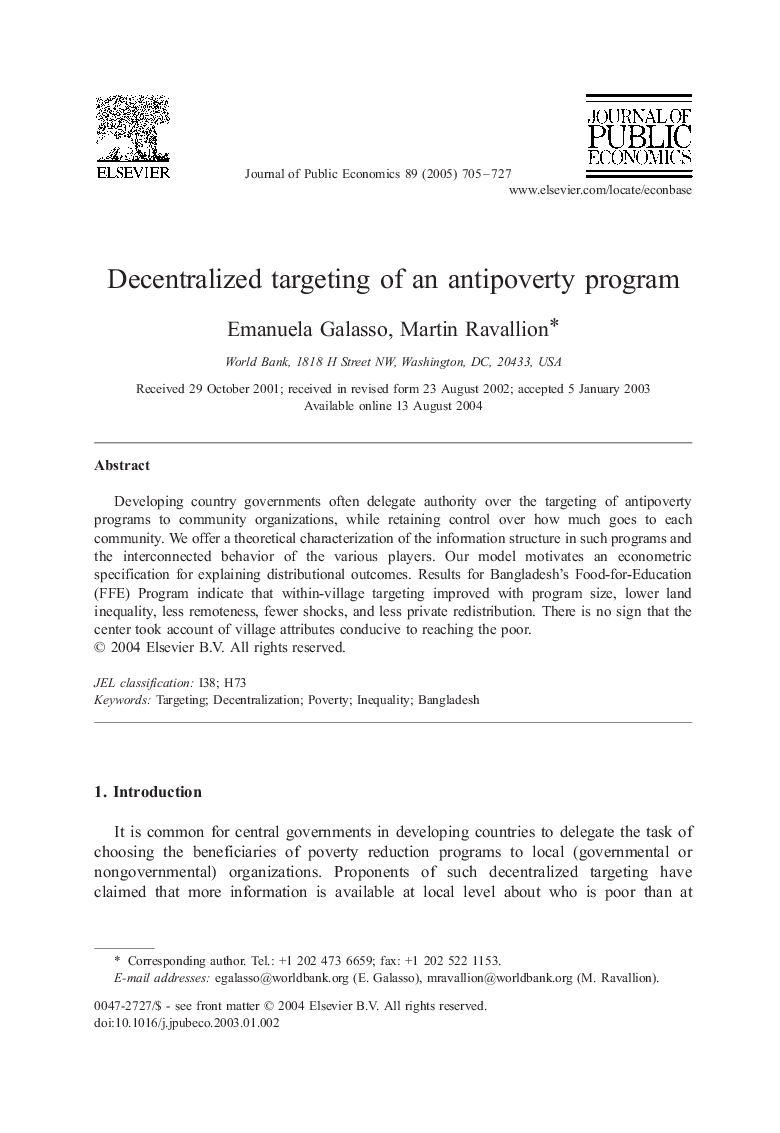| Article ID | Journal | Published Year | Pages | File Type |
|---|---|---|---|---|
| 10479682 | Journal of Public Economics | 2005 | 23 Pages |
Abstract
Developing country governments often delegate authority over the targeting of antipoverty programs to community organizations, while retaining control over how much goes to each community. We offer a theoretical characterization of the information structure in such programs and the interconnected behavior of the various players. Our model motivates an econometric specification for explaining distributional outcomes. Results for Bangladesh's Food-for-Education (FFE) Program indicate that within-village targeting improved with program size, lower land inequality, less remoteness, fewer shocks, and less private redistribution. There is no sign that the center took account of village attributes conducive to reaching the poor.
Related Topics
Social Sciences and Humanities
Economics, Econometrics and Finance
Economics and Econometrics
Authors
Emanuela Galasso, Martin Ravallion,
